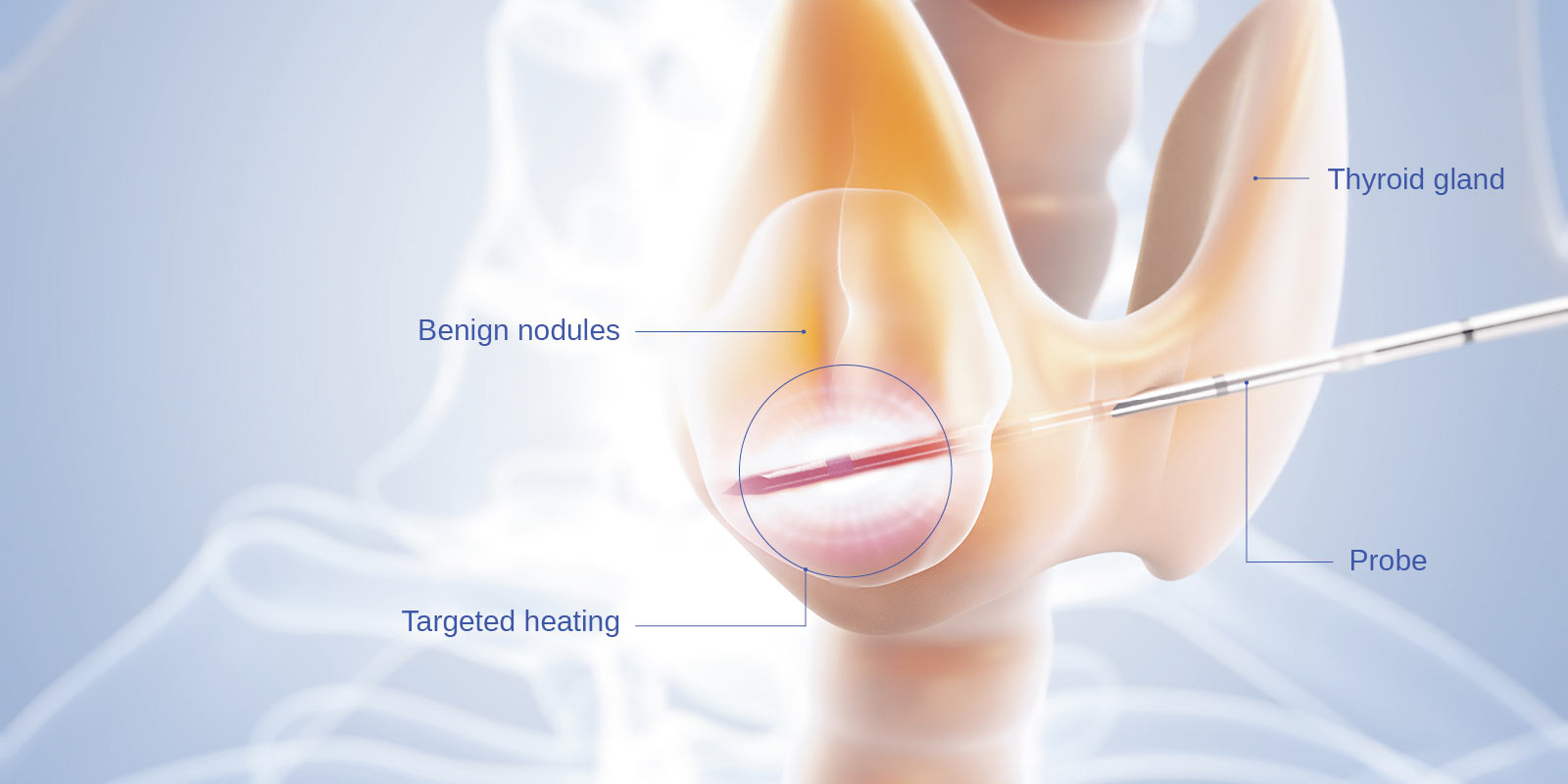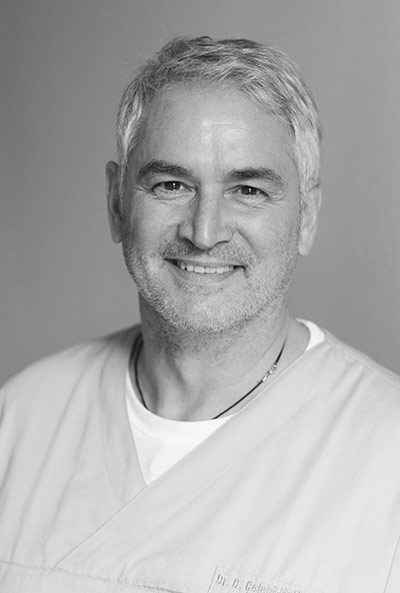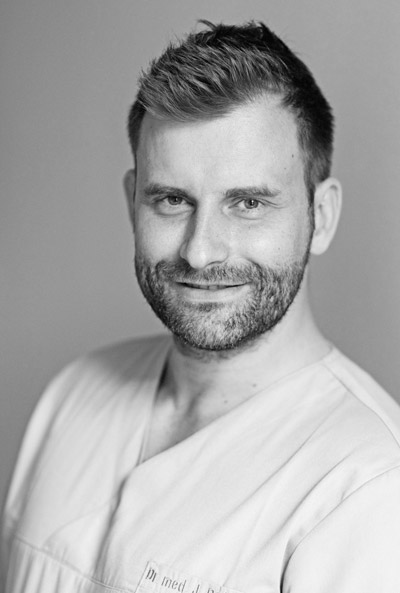Our reachability
Please note: Due to increased demand, we are currently unable to process enquiries by telephone.
We ask our patients to make their enquiries by email.
Therefore, please use Doctolib to book appointments or send us an email to
For further questions, please write to
Are there alternatives to thyroid surgery?
Thyroid surgery should only be performed if no other treatment leads to the desired success. In addition to medication, thermoablation, for example, is a safe, minimally invasive method of removing or reducing benign nodules and thus alleviating symptoms.
Is thermoablation painful?
No. The minimally invasive thyroid therapy we perform is carried out under local anaesthetic and is painless. Pain is also not to be expected after the procedure, as it is a particularly tissue-conserving procedure that does not leave any scars.
Are the costs covered?
Yes, radiofrequency ablation therapy is a recognised service that is covered by both statutory and private health insurances.
Thermoablation
Treating thyroid nodules with heat
Thermoablation or bipolar radiofrequency ablation (RFA) is a modern, safe and particularly tissue-conserving procedure for treating benign thyroid nodules. Under local anaesthesia, a thin probe is inserted through the skin into the desired area and the affected tissue is heated with pinpoint accuracy.
The thermally treated cells are deactivated and the tissue is broken down by the body within a few weeks or months.
With this method, which is performed without a permanent scar, the thyroid gland is preserved and even recovers, so that in most cases it is not necessary to take thyroid medication after the procedure.
more

These are the advantages
of thermoablation:
Treatment with local anaesthesia
No radioactive substances
Short therapy duration: Only a few minutes per treatment
Protection and preservation of healthy thyroid tissue
Reduction of the nodule volume by about 50% after three months
No dreaded surgical scar
Quick return to a normal daily routine
Usually no medication needed after surgery
Treatment can be repeated if necessary
Dr. med.
Christian Çelebi-Hoffmann
Specialist in radiology and nuclear medicine
1994
Medical approbation
1994-1996
Residency at the FU Berlin - Steglitz
1996-2001
Employee of the Radiology Department of the FU Berlin - Steglitz (Charité CBF)
2001-2006
Staff member of the Nuclear Medicine Department of the FU Berlin - Steglitz (Charité CBF)
2004
Specialist examination in diagnostic radiology
2005
Doctorate at the FU Berlin
2006
Specialist examination in nuclear medicine
2007-2013
Staff member in nuclear medicine practice
2013-2016
Head of MVZ Nuclear Medicine Charité CCM
2016-2019
Staff member in nuclear medicine practice
Seit 01.07.2019
Owner of the MVZ AnthroNUK
Memberships
German Society for Radiology
German Society for Nuclear Medicine
Berlin-Brandenburg Society for Nuclear Medicine
Berlin-Brandenburg Society for Radiology
Dr. med. Dipl.-Phys.
Johannes-Paul Richter
Specialist in radiology, specialist in nuclear medicine and medical physics expert
2005
Degree in physics (TU Berlin)
2008
Licence to practise medicine (Charité Berlin)
2009-2014
Staff member of the radiology department
2014
Specialist examination in radiology
2014
Doctorate at the University of Tübingen
2014-2018
Staff member in nuclear medicine
2018
Specialist examination in nuclear medicine
2019
Qualification as medical physics expert
seit 01.07.2019
Medical director and owner of the MVZ AnthroNUK
Memberships
German Physical Society
German Society for Radiology
German Society for Nuclear Medicine
Berlin-Brandenburg Society for Nuclear Medicine
Berlin-Brandenburg Society for Radiology




